Transition to „a developing world”
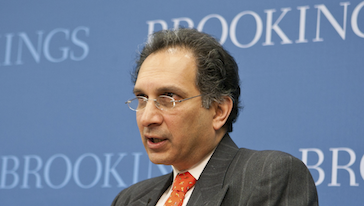
By browsing KDL, you agree to our use of cookies

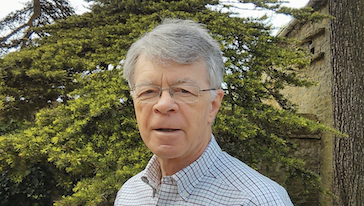
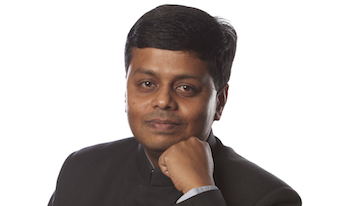
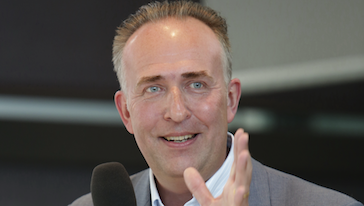
Traditional development concepts and their related strategies do not provide adequate answers to the emerging global problems, be they accelerated global warming, the growing gap between rich and poor, or the further expansion of the global shadow financial system. Given these problems, a future development agenda focusing only on poor countries and not on the rich ones would be inadequate. The old division of the world into developed and developing countries no longer reflects the political and economic realities of today’s world. Moreover, the concept of “developing countries” that gradually become “developed countries” is based on an outdated modernisation theory notion of a linear development trajectory on which progress is primarily defined as the speed of economic growth.
The debates on the Post 2015 Agenda offer the opportunity to reconsider development in light of the new realities and to overcome the old and often still paternalistic approaches of development policy. Therefore, a truly universal Post 2015 Agenda must not just become an updated set of MDGs. It should contain universal sustainability goals and a program for structural transformation which defines the necessary financial, regulatory and institutional means of implementation in all countries of the world, and this in line with their differentiated responsibilities and capabilities.
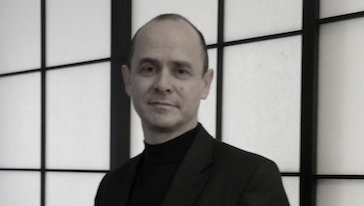
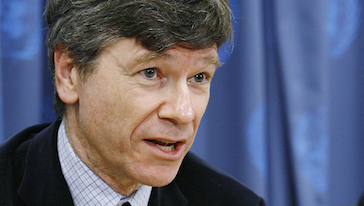
Prof. Jeffrey Sachs delivered a special lecture for the Kapuscinski Development Lectures on sustainable development and post 2015 development agenda. „Economic model driving the world economy really has reached its limits. Traditional patterns of economic development will no longer suffice. We need rather urgently new direction. It is our responsibility. Let’s move forward together to a new age of sustainable development” – said prof. Sachs in his lecture.
Prof. Sachs answered questions coming from the online audience from around the world during the live video chat.
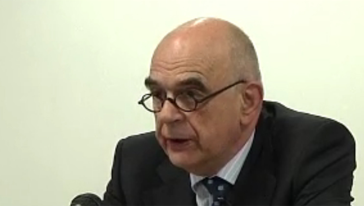
During his lecture, Emeritus Professor Jan Pronk touched upon key issues of the current and future international system from an interesting perspective laying at the intersection between international relations and international development.
Jan Pronk opened his lecture by reminding the audience of the core message of a lecture held by Kapuscinski at the University of Krakow in 2004. In that occasion Kapuscinski regarded as a crucial issue the respect of the dignity of each human being, regardless cultural differences and engaging oneself in dialogue, aiming at mutual understanding and a sense of togetherness; the respect, in short, of The Other.
This plea made by Kapuscinski in 2004, Jan Pronk suggests, is key to understand current threats and to tackle future ones. Indeed, international institutions inspired to dialogue and mutual understanding are crucial to uphold those global values that Kapuscinski identified.
Professor Pronk recalled the international system that was created after the second World War. From that new order, a era of globalisation that spread beyond economy and technology reaching the realm of values and institutions began. Professor Pronk recalled six key objectives that stood among the others: peace, security, stability, development, freedom and protection of human rights. These ambitious objectives could only be reached by relying on an integrated system, the United Nations.
Globalisation grew to maturity, Professor Pronk suggested, in 1989 when the divisions between North and South and between East and West started fading resulting in a real world market, enhanced possibility for movement of goods, people and technology as well as knowledge and ideas. It is after 1989 that, according to Professor Pronk, the sky became the limit.
Nonetheless, Jan Pronk warned that despite steady economic growth has been occurring since the 1990s, poverty has hardly decreased and globalisation enhanced inequality among countries and regions and the objectives set by the Millennium Development Goals at the beginning of the XXI century will not be met by 2015. The last two decades have witnessed conflicts in many regions of the world, spread of international terrorism, the arising of a new confrontational scenario between the West and the rest and more and more pressing environmental threats. The recent financial crisis contributed to make the landscape even more alarming. In other words, Professor Pronk suggests, the sky, although being still the limit, is rather cloudy.
What has been lost, according to Jan Pronk, is the spirit that drove the change in the mid-XX century, i.e. consensus on global values and international institutions able to enforce those values. International institutions are becoming weaker mainly due to a shift in the perception of security which is no longer regarded as a public good but rather as a private commodity. Security has nowadays become something that can only be achieved by excluding The Other.
How to revert this trend? This can only be achieved by a strong reassessment of values and reform of international institutions. This should be done not only in the interest of ourselves, but also in the interest of The other, that should be regarded as the humankind as a whole, bringing together, as suggested by Joseph Conrad, “the dead and the living and the living with the yet unborn”.
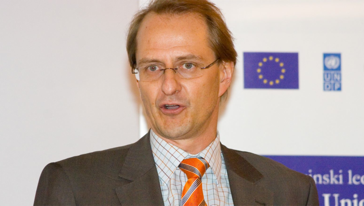
Prof. Dirk Messner during his lecture explored linkages between global climate change and development. Prof. Messner argued that it would be impossible to solve problems related to poverty and inequality without addressing the issue of climate change successfully. European Union (EU) has assumed global leadership in both tackling climate change and providing development aid to developing countries. However, devising adequate mechanisms of global governance is also necessary in order to achieve development and to reverse climate change.
Prof. Messner began his lecture by looking at four possible scenarios of global governance that may or may not be fostered by the global economic crisis. The first scenario represented re-engineering of the current Western-centric model. The second scenario represented a regression to fragmentation and protectionism. The third scenario prescribed financial regionalism, while the fourth scenario was the most positive in terms of global governance because it apprehended the model of rebalanced multilateralism. Prof. Messner claimed that the success or failure of development cooperation policy and putting a stop to climate change largely depended upon well-functioning multilateral institutions therefore the fourth model was seen as a necessary precondition for developing efficient global governance structures. Also, he argued that it was necessary to remodel global governance structures because the economic balance of power was very likely to turn upside down until mid-21st century.
Prof. Messner highlighted the role of the EU member states in global development cooperation. EU countries can make a difference despite the fact that most of them are small or medium-sized states. 60% of international official development assistance (ODA) is European, and 65% of bilateral donors are Europeans. Development aid is provided mostly because of the existence of enlightened self-interest on the part of European donor countries. Although European countries have already made significant contribution to global development, the time has come to decide between two conceptions of development policy. The first conception foresees a narrow focus on achieving MDGs, and it is largely aimed at helping the poorest of the poor (the bottom billion). The second conception, however, has a broader focus, and development is seen as part of strategies aimed at improving global governance (improvement of socio-economic conditions in developing countries, tackling world problems such as state fragility, insecurity and climate change, strengthening governance capacity of developing countries, facilitating development of relevant international regimes). Prof. Messner was in favor of the second conception of development policy because it was broader in scope and was better suited for meeting the multitude of global challenges (such as sustainable development, clean water, population and resources, democratization, global convergence of IT, transnational organized crime, energy, status of women, etc.) that humanity faces.
Climate change was singled out by Prof. Messner as being by far the most important of many global challenges. It was stressed that without addressing climate change problem it would be difficult to achieve development and meet MDGs. According to Prof. Messner, there are four fundamental prerequisites for development: soil and food, atmosphere and climate stability, energy, water. Although all four fundamentals are essential for development, their accessibility and availability is likely to be seriously eroded with the growing impact of climate change. Models that have been developed by climate scientists indicate that increasing numbers of population in developing countries are likely to face water stress, desertification, droughts, soil degradation and depletion of resources. Models exhibit that it would be difficult to satisfy demands for water, energy and food of the already existing population, but it is almost certain that world’s population will reach the 9 billion mark by mid-century. Largest population increases are expected in those regions that already have food, water, energy, and soil shortages. Climate change would only aggravate such shortages. Thus, it is almost impossible to achieve global development without addressing the problem of climate change.
De-coupling of energy use and development is an ambitious but necessary target, otherwise global warming would exceed the 2°C. Prof. Messner argued that there is little time left for curbing emissions in order to meet this goal (in order to reduce CO2 emissions by half until 2050). Although this is an ambitious goal, the EU countries should assume responsibility for bringing together both developed and developing countries in order to improve global governance, facilitate long-term thinking during policy preparation process, and write development and climate change objectives into decision-making mechanisms. Europe should also push ahead with the global climate change negotiations, build a low carbon economy, advocate for a MDG-plus development agenda, protect global forests and build low carbon partnerships with Africa, China and India.
Prof. Messner emphasized that the current challenges are enormous, but he was optimistic about the possibility of meeting these challenges successfully because threats, risks and vulnerabilities emanating from global challenges are real. Thus, international cooperation should be possible to achieve. Curbing climate change and achieving development is a collective effort that would require life-style change, new conceptions of wealth, radical improvements in terms of carbon and resource efficiency and transition from the era of national governance to the era global governance. In short, the present model of development is not sustainable therefore humanity should complete transition to a different model of development that is sustainable, and Europe has a key role to play in facilitating this process.
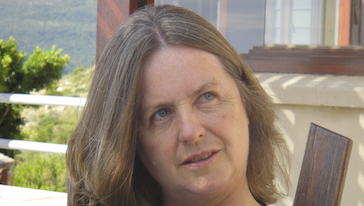
Starting with questions about what an increasingly urban world implies for fairness at the national or global scale in the 21st century, the geographical reference points for this investigation of “fair cities” are both northern and southern urban places. This lecture traces the divergent and contradictory intellectual and practice based traditions that the notion of fairness in the city implies, including the work on urban equity (rights, opportunity, access, affordability); justice (electoral; procedural, distributional, enforcement and); redistribution (urban welfare and post conflict); the public good and the good city.
The central point is to demonstrate that ideas and practices about fairness in the city vary over time and space and that while there is appropriate concern about rising exclusion and the withdrawal of social protection in some centres, typically older more affluent cities, from new urban nodes, largely in the global south, there are counter tendencies and new innovations that support the utopian aspiration that cities will provide a better future for the millions of new residents that will call them home over the decades to come.

Effective pursuing of sustainable development globally requires both political high-level agreements and practical implementation on the ground. Nick Moon takes care of the latter. As a co-founder of the KickStart International initiative, he promotes simple, cost-effective tools and solutions which increase agricultural productivity in Africa. Moon proves that social economy can bring benefits and effectively lift people out of extreme poverty through triggering their entrepreneurship rather than giving aid.
KickStart is an award-winning non-profit social enterprise, listed by Forbes Magazine as one of the world’s Top 30 Social Enterprises. KickStart has to date enabled over 135,000 “base of the pyramid” entrepreneurs to invest in and build successful rural family enterprises, taking over 670,000 people out of poverty, providing an additional 210,000 on-farm jobs, and generating $130 million annually in net profits and new household incomes.
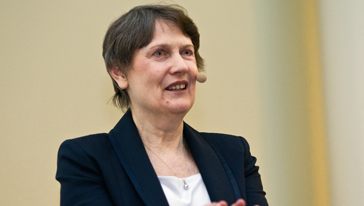
Helen Clark’s keynote speech discussed sustainable development with the aim of going from shared principles to practice. It included the threefold development agenda which addresses social, economic and environmental concerns. Clark referred to the post-2015 development framework and environment, the SDGs and the role of governance and political leadership in sustainable development, the different measures of development (e.g. GDP versus HDI), and the prospects of the Rio +20 conference. The cause to be advanced at the Rio+20 UN Conference on Sustainable Development is to figure out how to accelerate human progress while sustaining the planet’s ecosystems. Sustainability should not be treated merely as an environmental issue.
Clark called for Rio+20 to be practical, to connect aspirations for a sustainable world with what is needed to realize them. Before discussing what could be accomplished in Rio, Clark discussed the evolution of the concept sustainable development from the 1970s to the current era. Despite the progress made in this field over the decades, Clark identified the inconvenient truth to be that ending poverty remains a vast and unfinished agenda, and that inequality is further increasing.
There is an urgent need to put shared principles into practice as risks caused by unsustainability have increased and for example extreme weather phenomena have been a cause for major humanitarian crises in the past years. Poverty can reinforce cycles of environmental destruction also. In a world where inequality expands, population rises and environmental degradation accelerates, and old economic models falter, sustainable development should be seen as an opportunity to address urgent global challenges.
Clark also discussed UNDP’s triple win policies and programming, which are advancing economic, social and environmental objectives simultaneously.